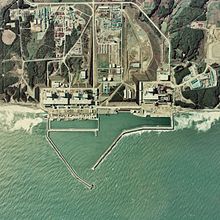Fukushima And Future Shape Of International ‘Nuclear Renaissance’ – Analysis
By IPCS
By Lydia Walker
To be trite, words are inadequate to describe the trio of disastrous events which have hit Japan recently – from earthquake, to tsunami, to potential nuclear meltdown. While the first two disasters are acts of nature, the third revives the historic trauma of the original detonations of Hiroshima and Nagasaki at a time when the idea of a nuclear energy renaissance had been gaining international popularity. Japan occupies a crucial role in these plans as a manufacturer, investor, and even moral arbitrator related to nuclear technology. Domestically, nuclear power makes up 13.6 per cent of Japan’s total energy supply and a substantial portion of its electricity production. Globally, the destruction of the nuclear plants in Fukushima will have international consequences for future nuclear power installations. Europe, India and the United States have all been in the process of shifting more of their future energy needs to nuclear power. How might Fukushima alter that shift? What will be the short-term energy ramifications of such a shift? What might be the more long-term geopolitical consequences?

There was a 1999 critical nuclear accident at a small experimental reactor in Tokaimura, Japan. Breaches in existing safety standards caused the accident, damage (resulting in two fatalities) was limited, and it did not grab the imagination of the international public. In contrast to Tokaimura, the present extensive nuclear accident in Japan is dramatic and symbolic; already other countries that use nuclear power are looking into the safety of their own reactors. But change is reactor construction and safety may well not be the most dramatic shift in nuclear energy politics. There will be ripple effects. Even Europe is rethinking its reliance on nuclear power. In Germany, nuclear energy has been a contentious issue for decades – nearly 70 per cent of Germans opposed nuclear power even before Fukushima. Henrik Paultiz, of International Physicians for the Prevention of Nuclear War, believes that “the accident in Japan could lead to a major rethink in Europe. And not before its time. Governments have not been transparent enough about the safety levels of the nuclear power sector.”
If some European countries who have been relying for some of their energy needs on nuclear power for decades are reconsidering nuclear energy in response to Fukushima, the US is in an even more politically charged position. Following the Three Mile Island nuclear accident in 1979, nuclear energy became deeply unpopular. Yet support for nuclear energy has experienced resurgence and is one of the few issues which has support from both Democrats and Republicans. However, Fukushima is causing all to pause in their enthusiasm. Senator Joseph Lieberman captured the new ambivalence around nuclear energy: “I think it calls on us here in the U.S., not to stop building nuclear power plants but to put the brakes on right now until we understand the ramifications of what’s happened in Japan.”
In India, the reaction to Fukushima has focused more on safety of domestic facilities rather than doubts about the safety of nuclear energy itself. Prime Minister Manmohan Singh has ordered the Nuclear Power Corporation of India to review its safety systems and security designs. The Government of India is also considering additional environmental safeguards to ensure safety of future nuclear reactors. Even before Fukushima, there have been growing protests of the “not in my backyard” variety related to the construction of Jaitapur reactor in Maharastra. Fukushima could well intensify these protests to the point of halting construction.
Yet if the nuclear energy option becomes untouchable, what are current global energy options? Jason Grumet, a former energy consultant for the 2008 Obama presidential campaign says that “it’s not possible to achieve a climate solution based on existing technology without a significant reliance on nuclear power.” Is nuclear energy too politically dangerous for states to touch? Grumet noted that “the world is fundamentally a set of relative risks,” and that disasters occur in coal mining, oil drilling, etc without even taking into consideration the long-term impact of carbon output.
If future reliance on nuclear power ceases to be politically viable, alternatives other than oil or coal will not be able to meet energy needs for the next few decades. This could lead to an even greater demand for oil which would strengthen regimes which benefit from higher oil prices, increase resource competition, and the future possibility of resource conflict. In the long-term, an increased reliance on oil would most likely lead to greater emissions of greenhouse gases.
In the short-term, Fukushima will make nuclear power plant construction at the very least a much more difficult proposition in many places in the world. But not everywhere. The Chinese Vice Minister of Environmental Protection, Zhang Lijun said on the state news that while “some lessons we learn from Japan will be considered in the making of China’s nuclear power plans … China will not change its determination and plan for developing nuclear power.”
Lydia Walker
Research Intern, IPCS
email: [email protected]
